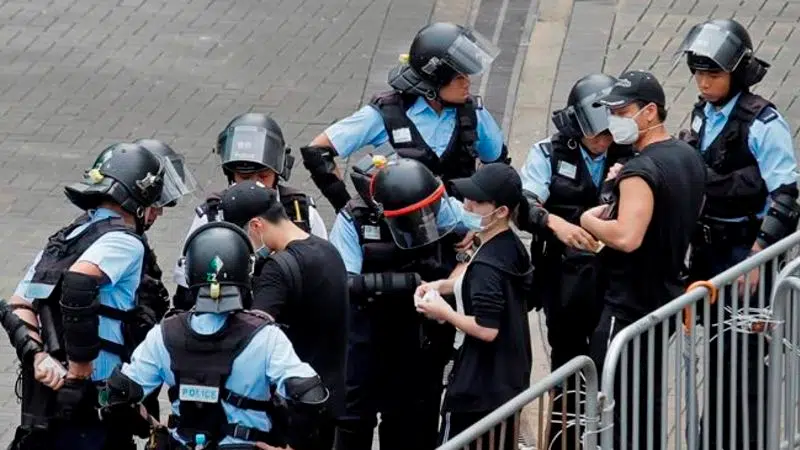
Hong Kong legislative work suspended amid political crisis
Hong Kong’s legislature suspended meetings Thursday following violent clashes between police and protesters who oppose a bill allowing suspects to be sent to mainland China for trial and that is seen as tightening Beijing’s control over the territory.
The events in the former British colony mark possibly its biggest political crisis since being handed over to Chinese rule in 1997, and they pose a profound challenge to Chinese President Xi Jinping.
Nearly two years ago, Xi issued a stern address in the city stating that Beijing would not tolerate Hong Kong becoming a base for what the ruling Communist Party considers a foreign-inspired campaign to undermine its rule over the vast nation of 1.4 billion people.


